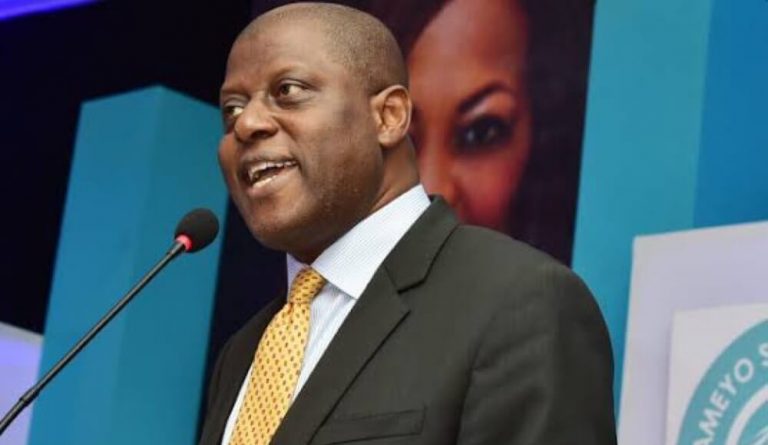
In a promising development for Nigeria’s foreign exchange market, Mr. Olayemi Cardoso, the Governor of the Central Bank of Nigeria (CBN), has announced that the remaining FX backlogs within the banking system are slated to be cleared in the next few days, potentially within a week and a half.
This announcement was made during a Foreign Portfolio Investor call organized by the Nigerian Exchange Group (NGX), where the CBN team elaborated on recent reforms aimed at rectifying distortions in the forex market.
Responding to inquiries about the current size of the FX backlogs and the steps being taken to address them, Cardoso disclosed that the CBN has already cleared its FX backlog in all banks except for five, which are expected to be resolved imminently.
Tekedia Mini-MBA edition 16 (Feb 10 – May 3, 2025) opens registrations; register today for early bird discounts.
Tekedia AI in Business Masterclass opens registrations here.
Join Tekedia Capital Syndicate and invest in Africa’s finest startups here.
“Basically what we have done with those is we have paid as much as we can to the point where we have cleared the backlog of all the banks save five. All the bank’s genuine and verifiable backlogs have been cleared save five,” he said.
The governor expressed confidence that the CBN would soon overcome the issue of forwards, indicating that within the next few days, the remaining backlogs would be resolved. He noted that he is committed to transparency and accountability, reiterating his track record of delivering on promises.
“I have tried as much as possible to be consistent on this matter. I don’t make promises I don’t fulfill. The last time I spoke on this matter, I was confident that within one month, we would be more or less out of it and I’m saying again that right now I think in the course of the next few days maybe a week and a half, this should be put behind us,” he said.
The clearance of FX backlogs has been a top priority for Cardoso, as underscored during his confirmation hearing at the Senate. Over the past several months, the CBN has made significant strides in addressing these backlogs, fulfilling the Governor’s commitment to resolving the issue.
In a previous press briefing following the first Monetary Policy Committee (MPC) meeting of the bank, Cardoso announced that the CBN had successfully cleared an additional $400 million of its FX backlog. Based on publicized figures, the remaining backlog is estimated to be approximately $1.8 billion.
Amidst the backdrop of Nigeria’s FX crisis, the announcement by Cardoso, regarding the imminent clearance of remaining FX backlogs has brought a glimmer of hope to the country’s financial sector. The FX crisis, characterized by severe shortages of foreign currency and a widening gap between the official and parallel market exchange rates, has plagued Nigeria’s economy for several years.
The FX crisis, which has set inflation at 29.90% height, has its roots in various economic factors, including declining oil prices, Nigeria’s overreliance on oil exports for revenue, and structural weaknesses in the economy.
As Africa’s largest oil producer, Nigeria’s fortunes are largely tied to the global oil market, making it vulnerable to fluctuations in oil prices. However, the nation’s misfortune has been tied to the shortfalls of its oil sector, with oil output declining significantly. The sharp decline in oil production in recent years has strained Nigeria’s foreign exchange reserves, leading to dwindling FX supply and exacerbating the crisis.
To address the FX crisis and stabilize the naira, the CBN has implemented a series of measures and interventions aimed at boosting FX liquidity and curbing speculative activities in the parallel market.
These efforts include: floating the FX market last year in a bid to create a unified exchange rate propelled by ‘willing buyer, willing seller’ policy. Also, the CBN regularly intervenes in the FX market through the sale of foreign currency to authorized dealers and end-users and arrest of perceived speculators. For instance, the apex bank recently approved the sale of $20,000 to Bureau De Change operators, following the raids conducted by joint security agents across the country.
These intervention sales aim to stabilize the naira, bridge the gap between the official and parallel market rates, and meet FX demand for critical sectors such as manufacturing, agriculture, and healthcare.
Despite these interventions, FX backlogs persisted within the banking system, posing challenges for businesses, investors, and individuals seeking access to foreign currency. The clearance of FX backlogs has thus emerged as a priority for the CBN, with Cardoso emphasizing its significance during his confirmation hearing at the Senate.



